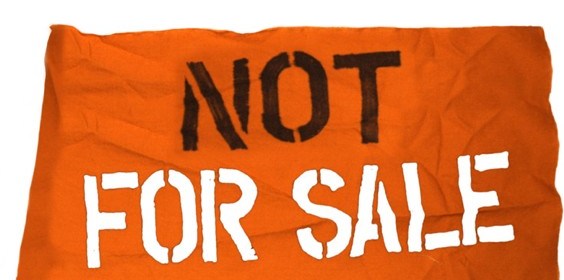In January 2007, I provided character narration for Not for Sale, a documentary about the return of the global slave trade, based on David Batstone’s book of the same title. This month Julia Ormond, Ashley Judd, and many others helped launch the rockumentary, Call+Response. These films seek to raise public awareness about human trafficking.
The global slave trade continues to thrive because it goes largely unnoticed, or worse misperceived. This isn’t a third-world problem or merely an immigration issue. There are predators today who view people, especially women and children, as commodities. Those born in poverty are the most susceptible, but anyone anywhere can be a victim.
Human trafficking is the fastest growing and most profitable crime in the world. The United States estimates that over 600,000 people are trafficked across international borders every year and forced into slavery for sex and labor. Of that number, it is believed that 80% are women and girls and 50% are minors. These are conservative estimates when you consider the number of incidents that are undetected and the fact that this estimate does not include people trafficked within their own borders.
This is happening all over the world — yes, here in the United States as well.
The United States is a source and destination country for thousands of men, women, and children trafficked for the purposes of sexual and labor exploitation . . . An unknown number of American citizens and legal residents are trafficked within the country primarily for sexual servitude and, to a lesser extent, forced labor.
— From the U.S. Dept. of State June, 2007, Trafficking In Persons Report
Next month, the United States may elect its first black president. It’s not surprising, therefore, that much of the discourse leading up to this election has included issues of race and slavery, but often relegating slavery to a footnote in history. Although African slaves in colonial America were emancipated by the Thirteenth Amendment to the Constitution, it’s hugely misleading to think that slavery has been abolished in this country. All we’ve done is make it illegal.
There are ways to detect possible incidents of human trafficking. Unfortunately they are often confused with — or upstaged by — other crimes. The most obvious may be signs of physical abuse, underage prostitution, child labor, people smuggling. Predators may entice victims through what appear to be legitimate employment opportunities with modeling agencies, babysitting services, massage parlors, and other industries. When it involves people who aren’t citizens of the U.S., a big flag is raised if those individuals don’t have immediate possession and control of their own legal documents, passports and so forth. The point of these resources (and this blog) is not to raise paranoia, but awareness. Taking notice of things is a first step to empowerment. That can lead to all kinds of positive change.
To learn more about human trafficking and the global slave trade, here are some great resources:
- Be Smart, Be Safe, DoS publication
- Not for Sale: Return of the Global Slave Trade — and How We Can Fight It, book by David Batstone
- Not for Sale, documentary, and website
- Call + Response, documentary and website
- HumanTrafficking.org
- ASSET, Alliance to Stop Slavery and Trafficking focused on economic impetus
- Polaris Project


